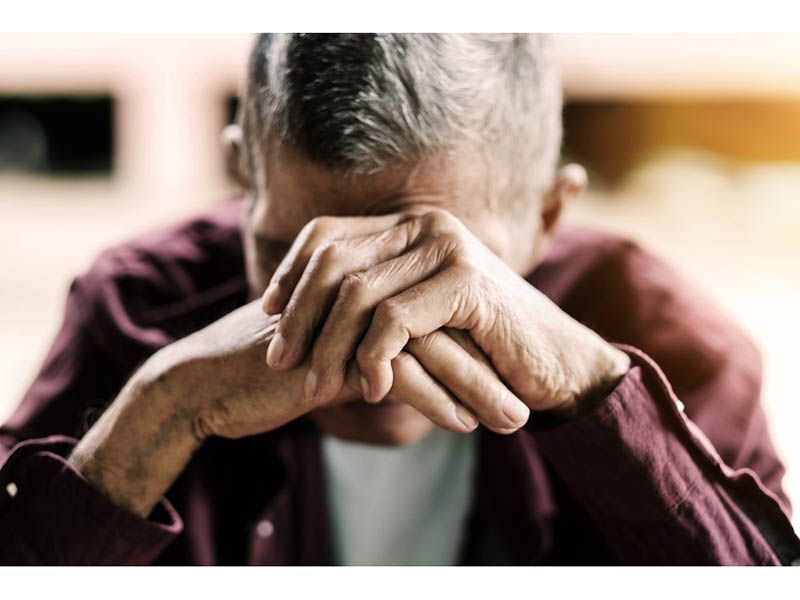TUESDAY, Jan. 19, 2021 (HealthDay News) — New research reveals an encouraging trend: Despite the rate of suicide rising overall for Americans, U.S. cancer patients are actually less likely now to take their own life than in the past.
Researchers at the American Cancer Society (ACS) tracked national data on causes of death among Americans for the years 1999 through 2018. They found “a decreasing trend of cancer-related suicide during the past two decades,” with suicides among cancer patients dropping an average 2.8% per year. That’s compared to an annual 1.7% rise for suicides among the population as a whole, according to a team led by ACS researcher Xuesong Han.
It’s not clear why suicide rates are dropping for cancer patients, but one expert has a theory.
The decline “suggests that advances in palliative care, pain medication and psychological support may be effective in reducing suicidal ideation and behaviors,” among cancer patients said Brittany LeMonda, who wasn’t connected to the new research. She’s senior neuropsychologist at Lenox Hill Hospital in New York City.
The ACS researchers also noticed trends in suicide rates depending on the type of patient and the type of cancer.
They found that when cancer patients ended their own life, lung cancer (18.2%), prostate cancer (15.4%), and colon cancer (9.1%) were the most common contributing causes.
On the other hand, cancer-related suicide declines were greater for older vs. younger patients, for males vs. females, and for those living in urban compared to rural areas.
However, even as America wrestles with an epidemic of opioid abuse and gun violence, rates of suicide involving firearms did not rise among cancer patients, and drug-linked suicides also remained low, the study found.
The findings suggest that health care providers are getting better at making the cancer experience more bearable, Han and her colleagues said.
“Advances in supportive care and policies ensuring equitable access to increased psychosocial care, and palliative and hospice care services are essential in delivering high quality cancer care to maximize patients and families’ quality of life,” they wrote.
Jessy Warner-Cohen is senior psychologist in psycho-oncology at Northwell Cancer Institute in Lake Success, N.Y., and has witnessed patients’ struggles firsthand. Reading over the new findings, she said that “distress has been shown to potentially interfere with medical care, decreases quality of life, and can even mitigate some of the effects of cancer-related treatments.”
According to Warner-Cohen, patients need psychological services onboard as part of their health care regimen.
“Cancer care is a long and difficult process,” she said. “It is a challenge for people to maintain hope through this all.”
According to Warner-Cohen, psycho-oncologists “work with patients to define hope on their terms — for example, controlling pain as their goal rather than completing treatment for those who will need ongoing care.”
She stressed that that’s only becoming more crucial during the pandemic.
“Levels of distress, and potentially even suicidality, amongst those doubly affected by cancer and the COVID-19 pandemic has yet to be seen,” Warner-Cohen said. For many, in-person visits are difficult now, so having alternatives like telemedicine covered by insurance helps.
“It is imperative for support for psycho-oncology programs to not only grow but for payer sources, such as insurance, to continue allowing flexibility in treatment means, such as continuing the use of telehealth platforms that have been allowed since the start of the pandemic,” she believes.
The new report was published Jan. 19 in JNCI: The Journal of the National Cancer Institute.
More information:
There’s more on helping cancer patients cope at Cancer Research UK.
SOURCES: Brittany LeMonda, PhD, senior neuropsychologist, Lenox Hill Hospital, New York City; Jessy Warner-Cohen, PhD, MPH, senior psychologist, psycho-oncology, Northwell Cancer Institute, Lake Success, N.Y.; JNCI: The Journal of the National Cancer Institute, Jan. 19, 2021
Copyright © 2026 HealthDay. All rights reserved.

